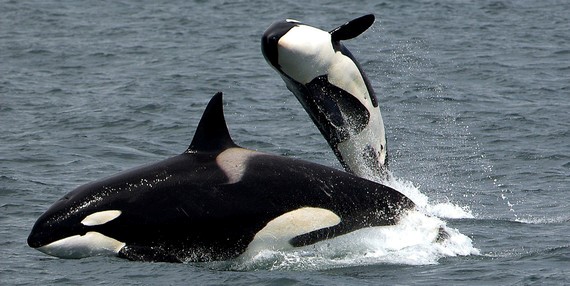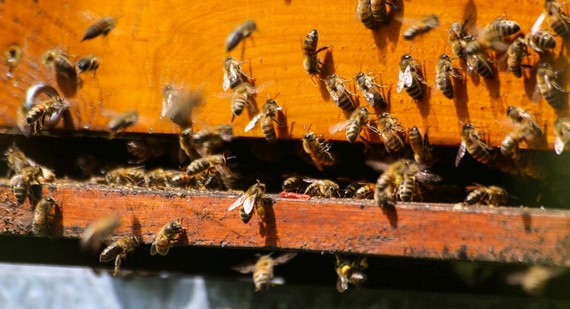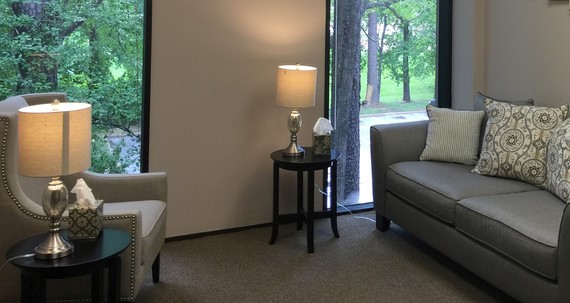Dear friends and neighbors,
I’m going to apologize in advance for the length of this newsletter, but we really got a lot done. As you probably know, the environment has been a top issue of mine since I came into office, and the 2019 session was one of the most productive in decades in terms of prioritizing the long-term health of our environment and reducing greenhouse gas emissions. The Legislature took significant action that will move our state toward a clean energy future and help mitigate the damages of climate change.
I’ve listed about a dozen important bills just about our environment. This doesn’t include other important work we did on education, healthcare, or criminal justice reform (we accomplished a lot there too). And if you scroll all the way down, you can also read about historic investments we’re making in behavioral health.
So, thanks in advance for your patience as you read through just some of the important work we did in our 105 day session. And did I mention we finished on time?
Unprecedented progress on environmental protections
So long, super pollutants (HB 1112)
Hydrofluorocarbons, or HFCs, are used as commercial and industrial refrigerants and foam-blowing agents. These greenhouse gases are known as “super pollutants” because they can be thousands of times more damaging to our climate than carbon dioxide. We’re phasing out HFCs in our state thanks to this bill, transitioning to safe and cost-effective alternatives that already exist.
100% Clean Electricity (SB 5116)
We’re transitioning to a clean energy future by requiring utilities to transition away from fossil fuel-generated electricity. With a preliminary “coal elimination” deadline of 2025, and a final “clean grid” deadline of 2045, Washington is firmly on a path to 100-percent clean energy from renewable and zero-emission sources like wind, solar, and hydropower.

Energy efficiency/clean buildings (HB 1257)
Buildings are the fastest-growing source of emissions in Washington, as well as the sector in which emissions are the cheapest to reduce. With this first-in-the-nation energy efficiency standard for large commercial buildings, we’ll retrofit older buildings and build even more efficient new ones, cutting carbon emissions quickly and economically while creating good-paying jobs.
Appliance efficiency (HB 1444)
New efficiency standards for certain appliances and design requirements for electric water heaters will reduce electricity and water use while also reducing greenhouse gas emissions.
Clean transportation (HB 2042)
Washington is transitioning to a zero-emissions transportation sector with incentives to make electric and other alternate fuel vehicles more accessible for consumers. In addition, the state will help utilities invest in vehicle charging stations and other infrastructure, as well as create a new grant program to help transit agencies electrify their fleets.

A package of bills to protect our endangered Southern Resident killer whales and the waters they call home also passed this session:
Protecting our Salish Sea from oil spills (HB 1578)
We’re reducing threats to orcas and marine life by reinforcing Washington state’s Oil Spill Prevention Act and the Strengthening Oil Transportation Act, requiring tug escorts for small oil tankers and barges traveling across narrow straights within the San Juan Islands.
Increasing Chinook abundance (HB 1579)
One of the biggest threats to continued survival of the Southern Resident killer whale is the ability to find enough food to survive and reproduce. This legislation will help protect the critical habitat that orcas and the Chinook salmon and other forage fish they feed on need to survive.
Protecting orcas from marine vessels (SB 5577)
Reducing noise and disturbance from vessels will give orcas the space and quiet they need to find food and survive. We’re increasing the distance boats must stay from Southern Resident killer whales and adding a go-slow zone for boats viewing them.

Preventing toxic pollution (SB 5135)
Reducing exposure to toxic pollutants will help our critically endangered orca population and their prey, but it also helps all of us – particularly children and pregnant women. The state will help identify and remove pollution at its source before it enters our water supplies, food, homes, marine waters, and bodies.
Adding safe whale watching to boating education (SB 5918)
Requires state boating education to include information on new regulations, safe whale watching, and other actions boaters can take to protect the health of orcas.
Toxic cleanup and reducing stormwater pollution (SB 5993)
We increased and reformed the hazardous substances tax levied on petroleum products, generating hundreds of millions of dollars to clean up contaminated sites, prevent future pollution, and improve how we manage stormwater runoff that harms the health of Puget Sound.

This session also saw the passage of a few bills I prime sponsored that address environmental issues, including:
Paint stewardship (HB 1652)
We’re keeping paint out of our landfills, soil, and water by requiring producers of architectural paint to participate in an approved stewardship program that recycles or otherwise safely disposes of paint.
Protecting pollinators (HB 1133)
Pollinators, such as bees, are crucial for our food supply. It’s vital to our state’s economy and agriculture that there are healthy hives throughout the state, including in urban areas. By limiting the liability of apiarists, we can encourage urban beekeeping.
Voluntary hazardous waste cleanups (HB 1290)
Cleanups of hazardous sites are often driven by redevelopment and the sale of property. Over the last few years, supply has not kept up with the demand for voluntary cleanup assistance, which makes it difficult for projects that may be on short timetables. By creating a self-funding, expedited review process and waiving the review costs for affordable housing projects, we can help the Department of Ecology address the backlog of cleanup sites, and encourage affordable housing development.
Environmental infrastructure investments
Funding environmental restoration projects is also a key aspect in protecting our waterways and wildlife. In the 21st District, I’m most excited about the funding for the Dayton Street Pump Station project, which is the first step in restoring the Edmonds Marsh, as well as the work being done at Japanese Gulch Park and the estuary restoration at Meadowdale Beach Park. These three projects will aid in restoring our ecosystem and have long-term benefits for salmon and orca recovery, something critical not just to our region, but the entire state.
It’s easy to think that with the passage of significant environmental legislation and funding environmental restoration projects around the state, we’re all caught up when it comes to the environment. However, while we passed some key policies and made important investments this year, we need to do much more to reduce greenhouse gas emissions, to protect our endangered wildlife, and to ensure our quality of life. I’ll continue working throughout interim, next session, and beyond to achieve more environmental progress for our state.
Expanding and improving behavioral health care
In my time in the Legislature, the behavioral health needs of our state have only continued to grow. We’ve made some progress on integrating our behavioral and physical health care systems, but our behavioral health capacity and workforce continues to lag behind the demand.
The 2019-21 capital budget not only invests in the immediate needs of increasing and improving treatment capacity and community-based services, but also serves as a foundation for the future of our state’s behavioral health system. It was an honor to serve as one of the leads on the behavioral health care aspect of this budget, which will make a significant difference in the lives of many Washingtonians.
The Legislature approved a $4.9 billion capital budget this session, and those infrastructure investments include a record of more than $300 million in funding for behavioral health facilities, including:
- $120 million in Behavioral Health Capacity grants for community mental health facilities;
- $35 million from the Housing Trust Fund for supportive housing with wrap-around services for the chronically mentally ill;
- $33.7 million to plan and design a behavioral health teaching facility run by the University of Washington (House Bill 1593);
- $64.4 million for patient safety and other necessary upgrades at Western and Eastern State Hospitals; and
- $55 million to increase and improve capacity at Western State Hospital and new state-run community settings.

In addition to the investments in the capital budget, the 2019-21 operating budget includes funding to reform and improve the state behavioral health system, including:
- $47 million to expand community behavioral health beds and services;
- $92 million in this biennium to ensure the stability of state hospitals and the safety of patients and staff; and
- $74 million in this biennium to comply with the Trueblood court ruling.
If you have any questions, comments, or concerns about the policies discussed above or any other legislative issue, please feel free to reach out!
Sincerely,

Rep. Strom Peterson
